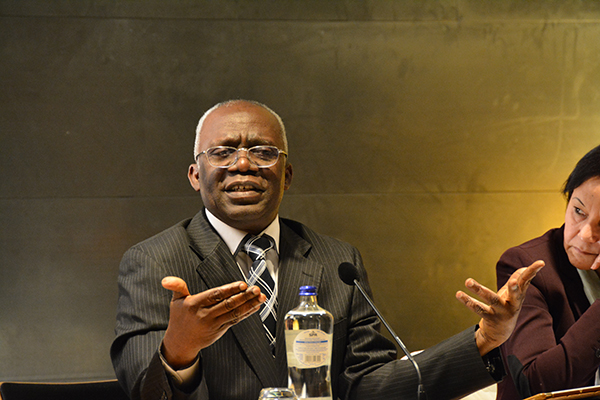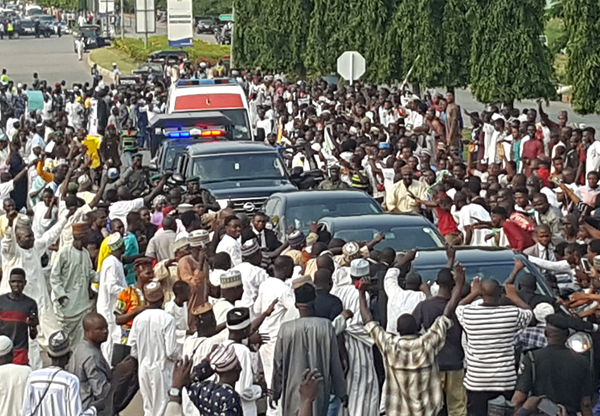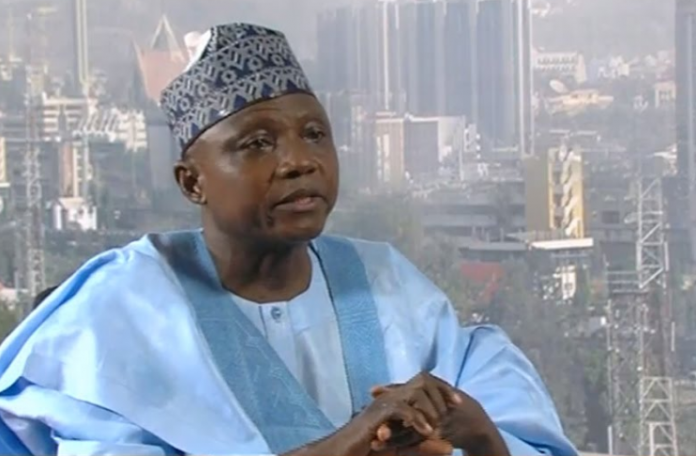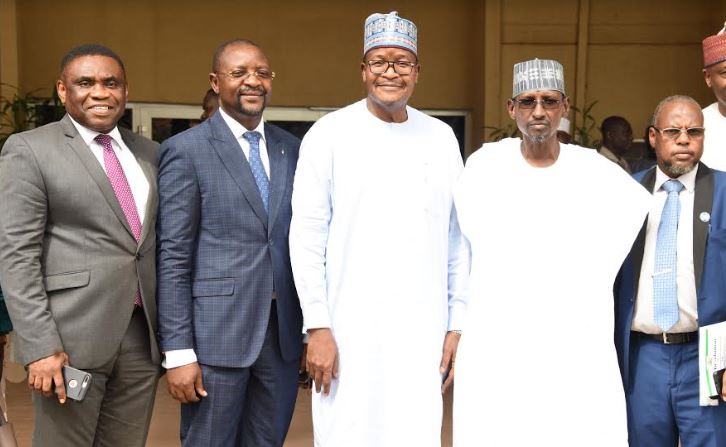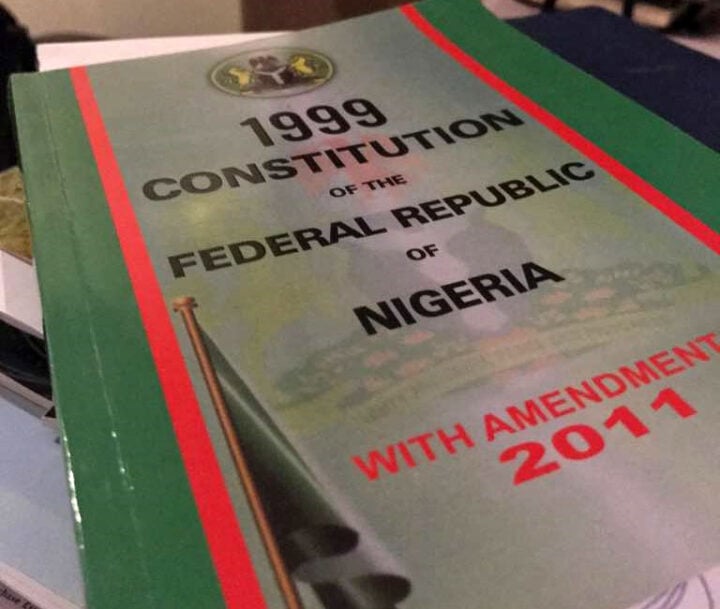It’s frequently claimed that human rights – civil, political, economic, social and cultural rights – are indivisible, and the international community has declared the indivisibility, interdependency, and interrelatedness of these rights to be beyond dispute.
Yet in practice, socio-economic rights remain largely neglected and marginalized.’
Violations of civil and political rights attract much more attention than violations of their socio-economic and cultural counterparts.
In this comprehensive and incisive book, Femi Falana SAN sets out to examine the legal treatment of socio-economic rights in Nigeria, and the broader context in which the rights are defined, understood, interpreted and implemented.
Advertisement
As the book makes clear, the lack of constitutional recognition of socio-economic rights has continued to rob Nigerians of one major instrument for monitoring and controlling the conduct of those making public decisions on their behalf. Indeed, the framers of Nigeria’s constitutions have historically failed to take human dignity and human need seriously.
The 320-page book also highlights the contemporary challenges obstructing the legal protection and enjoyment of these rights in the country.
The book challenges the notion that socio-economic rights are not legally enforceable human rights and sets out the trends in the justiciability of the fundamental objectives and directive principles of state policy enshrined in Chapter II of the 1999 Nigerian Constitution (as amended).
Human rights discourse in Africa, its preface explained, has been exploited by different groups at different historical epochs to advance their class interests.”
The author makes clear that the British government during colonial era failed to embrace the notion of universality and indivisibility of human rights, to the point that the human rights of the people were observed more in the breach than in their observance.
Advertisement
Although the British government subsequently ensured that fundamental rights became a central feature of the Independence Constitution of 1960, the move was merely to secure the liberty of aliens and protect the economic interests of foreign governments and companies operating in Nigeria.”
Nonetheless, Falana traced the progress that has since been made through constitutional development stages, starting with the recommendations in 1975 of the Constitutional Drafting Committee to include “Fundamental Objectives and Directive Principles of State Policy” in the 1979 Constitution and subsequent constitutions.
However, the marginalization of socio-economic rights continued because the ruling class ensured that only civil and political rights were included in chapter 4 of the Constitution as justiciable”, thus leaving the victims of violations of socio-economic rights without access to effective remedies.
To map and mirror this gradual evolution of laws and progressive judicial decisions on socio-economic rights in Nigeria, the book offers a comprehensive and nuanced account of specific socio-economic rights, their legal and jurisprudential context and how they have been and might be deployed.
Advertisement
Following the Introduction, there are twelve chapters, arranged thematically and addressing topical socio-economic rights issues such as the right to health; to education, and to work.
Each chapter cleverly analyses the contents of specific socio-economic rights and corresponding obligations of Nigeria to protect, respect, promote and fulfill the rights.
Each chapter is very thorough in its approach to the topic under discussion, analysing and unpacking several applicable laws, treaties, and buttressing them with decided cases and opinions of scholars.
Issues relating to the legal protection of the human rights of women, children and people living with disability are also thoroughly examined.
Advertisement
In a bravura display of scholarship, he demolishes the notion of hierarchies of human rights and the arguments that socio-economic rights are not justiciable, convincingly making the case for the universality and indivisibility of all human rights.
The book’s outstanding contribution lies in its detailed examination of several legislation and case-laws (that are not easily found) relevant to the legal enforcement of socio-economic rights in Nigeria. Falana’s range is impressively wide.
Advertisement
He takes us from the analysis of largely non-justiciable constitutional provisions on socio-economic rights, through the commendable array of legislation in the field, to Nigeria’s acceptance and ratification of international and regional standards such as the International Covenant on Economic, Social and Cultural Rights and the African Charter on Human and Peoples Rights.
Along the way he shows how judicial attitudes slowly evolved from ambivalence and rejection of socio-economic rights as human rights, to acceptance of the rights, and progressive pronouncements by local and regional courts.
Advertisement
The key argument of the book is that despite these shifts and positive changes, much more must be done to “enhance the development of the contents of economic, social and cultural rights by the courts and regional and international human rights bodies, if only to overcome prejudices against these rights.”
Furthermore, Falana points to the need for Nigeria to ratify the Optional Protocol to the International Covenant on Economic, Social and Cultural Rights, which allows individuals and groups whose socio-economic rights are violated to access international accountability mechanism in the form of the Committee on Economic, Social and Cultural Rights, and advocates consistent use of public interest litigation to promote legal reforms and grant victims access to effective remedies and make Chapter II of the 1999 Constitution [as amended] and applicable treaties a living and daily reality for the disadvantaged and vulnerable sector of the population.
Advertisement
But these will count for nothing unless the government plays its own part by making sure that decisions and judgments of courts relating to economic and social rights are fully and effectively implemented.”
This recommendation is important, especially given the rather depressingly low record of the governments compliance with judgments of local and regional courts and decisions of international human rights bodies.
The book includes five appendices: a snapshot of the socio-economic rights guaranteed by the African Charter on Human and Peoples Rights (Ratification and Enforcement) Act and Chapter II of the Nigerian Constitution; a plethora of applicable national legislation that are not easily found, as well as international human rights and labour treaties to which Nigeria is a state party. A comprehensive list of bibliography and an excellent index round out this first-class work.
Overall, the book undoubtedly makes a profound contribution to the jurisprudence on the justiciability and legal enforcement of socio-economic rights in the country. The breadth and depth of Falanas work contributes substantially to answering the myriad of questions raised and left unanswered by the absence of constitutional recognition of socio-economic rights in Nigeria.
Falana performs a formidable service by providing such an insightful synthesis of the most important elements of the emerging jurisprudence–both national and international–on socio-economic rights, and highlighting the need for the application of constitutional and legal principles to achieve the full enjoyment of these human rights, particularly by the most vulnerable and marginalized sectors of the population.
The books lasting value will, no doubt, be attributed to its analysis of topical human rights issues such as the right to a safe environment; to residency and movement of persons; to control of natural resources; to an accountable government; to security and welfare.
This book is timely, as there’s increasing interest among Nigerians (as there’s elsewhere) in the stronger protection of socio-economic rights, which are vital to the survival, dignity, and prosperity of everyone. The enjoyment of such rights is indeed necessary to eliminate the causes of poverty and other threats to national peace and security.
Falana’s work provides a welcome break from the orthodox literature on human rights. The book is well-researched and well-written, thus making it easily accessible to legal practitioners, scholars, human rights defenders, and law students for whom it should become an essential companion.
It’s no exaggeration to say that the book will change the way socio-economic rights are understood in Nigeria.
Olaniyan, PhD is the author of Corruption and Human Rights Law in Africa
Views expressed by contributors are strictly personal and not of TheCable.
Add a comment

